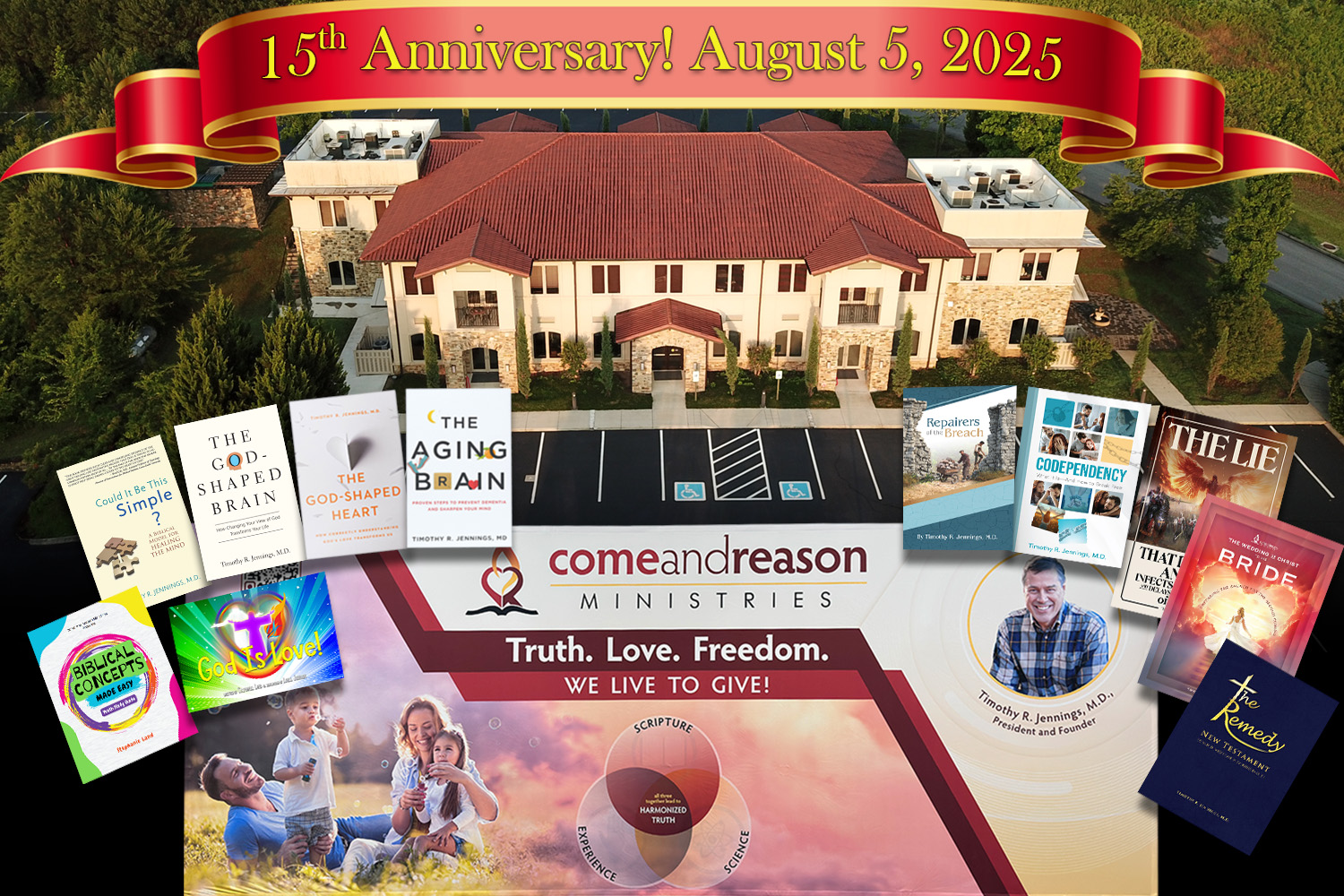Have you ever struggled to know what God would have you do in a given situation? Have you ever been in a circumstance in which there was no absolute right or wrong and you needed to make a decision, but you weren’t sure what to do? You wanted to honor God, but the situation wasn’t one that God’s Word gives any specific wisdom about. The facts and evidences before you were not sufficient for you to know which course was best. Such decisions as: Should I attend this church or that church; go to this school or that one; which car should I buy; should I accept the job offer and move to another city; should we sell our house or buy a house or rent?
Many of life’s decisions have no specific direction from God’s Word and are left up to us. Yet, we don’t want to squander God’s blessings; we don’t want to waste resources; we don’t want to dishonor God; we want to be good stewards because we believe in God and love Him. Too often, we struggle with the dilemma of believing in God yet not knowing what He would have us do in any given situation.
We might even have a history of making decisions on our own and getting burned by the outcome and, having been burned, we are doubly hesitant to make new decisions. We might be gun-shy and overly cautious. If you have such a history, have you reflected on what your past experiences can teach you, where the decision-making process broke down, and how to update the process in order to reduce the likelihood of moving in directions that are outside of God’s will?
As I look back on my life, I have discovered that sometimes I have been like King David, filled with love for God, moved with awe, overwhelmed with admiration for my incredible Creator and Savior; humbled and inspired by some new insight, experience, or intervention, my love for God motivated me to take action. And like David sought to build the temple, I launched into some project to honor the Lord. But then, like David, I discovered that in my enthusiasm, I was running ahead of God; I was jumping to conclusions, initiating actions or joining projects that were indeed good projects, that were for the Lord’s cause, but they just weren’t what God wanted me to do.
At other times, I have been like Jonah; my heart was convicted of God’s will, of what He wanted me to do, but the direction God was leading went against my wishes, cut across my desires, offended my inclinations, and so, like Jonah, I ran away from where the Lord was leading. And as a psychiatrist, I have discovered many ways that people run away from the Lord. We can run into good causes—just not the causes God has for us. We can run into sinful living seeking to silence the conviction of the Spirit. We can run into entertainment, relationships, or shopping. But no matter where we run, we will not be at peace until we stop running from the Lord.
But God is gracious. Even though I, at times, have run from God’s calling, He has never stopped chasing after me. I might have been hiding in the bushes, covering myself with fig leaves, but He always came for me, calling my name. But, like Jonah, sometimes I was stubborn and didn’t respond to His gentle calling, so God graciously allowed the storms of life to overwhelm me as I fled from His presence. And then I realized that no matter how hard I fought to stay afloat, without the Lord, I couldn’t. Whenever I have run away from the Lord, I always found the ship sinking and my only recourse was to jump into the sea and throw myself fully into the Lord’s care. Like Jonah, I found that I was lost without the Lord, drowning in my problems, suffocating in the darkness of guilt and shame, powerless to deliver myself. But in every case, when I surrendered myself to God and trusted Him with the outcome, He delivered me. He led me out of the dark depths back into the light. He took away my guilt, freed me from shame, and opened avenues to success, providing the resources to overcome, and solutions to my problems that I never even considered; then He put me right back on the path He had called for me to fulfill—and, oh, what joy filled my soul!
And then, at other times in my life I have been like Martha, not moved by awe into running ahead of the Lord, or running away from known revelation, but simply too busy with life’s real responsibilities to sit at Jesus’ feet and spend time with Him, listening to Him, communing with Him. One of the devil’s traps for those of us whom he cannot get to directly choose evil is to overburden us with good things so that we crowd out the essential—our time with Jesus.
As I look back on my life, I have discovered that being like David and running ahead of the Lord leads to disappointment; being like Jonah and running away leads to defeat; and being like Martha and running around in business leads to exhaustion.
As I reflected on these three Bible characters, I realized that in no case did these people reject God. They were not unbelievers; they had not lost faith in God. They had merely stopped listening. They had allowed their circumstances to stir up emotions that motivated them to act without first going to Jesus. It wasn’t a lack of faith in God; it was a lack of a moment-to-moment living connection with God.
David was a believer whose belief inspired him to seek to do a great work for the Lord—it just wasn’t the work God wanted him to do. Jonah had faith in God, knew God had called him, but he just didn’t like what he was called to do. And Martha was working to prepare a meal for Jesus, not because she didn’t love and trust Him, but because she did; she just didn’t stop to let Him feed her with the bread of life.
In each of their lives, they had moments when they were overcome with emotion—David with love and awe, Jonah with fear and anger, Martha with stress and a frantic sense of being overwhelmed. And they allowed their emotions to immediately move them to action, to direct them, to determine their choice. They didn’t merely allow the emotions to energize them and go to the Lord for His direction; instead, they allowed the emotions to launch them, to initiate their course, to form their conclusions. I have discovered that I have made the same mistake in many places in my life.
And then I remembered Elijah. After his great victory at Carmel, he was threatened by Jezebel and so overwhelmed with fear that he ran away discouraged and hid himself in a cave. And in that place of discouragement …
A great and powerful wind tore the mountains apart and shattered the rocks before the LORD, but the LORD was not in the wind. After the wind there was an earthquake, but the LORD was not in the earthquake. After the earthquake came a fire, but the LORD was not in the fire. And after the fire came a gentle whisper. When Elijah heard it, he pulled his cloak over his face and went out and stood at the mouth of the cave (1 Kings 19:11–13 NIV84).
I have learned that it is during times of great emotion that I am tempted most to run ahead, or run away, or run around, but it is exactly at those times that I need to “be still, and know that I am God” (Psalm 46:10). It is in times of great emotion that I need to seek the Lord and pour out my feelings to Him. It is then that I need to find that quiet place where I can hear the voice of God speak to me. For when emotions are strong, it is often difficult to listen—to hear what God is saying.
So, I have discovered that when my emotions are running high, I must go to God. I must praise Him when filled with awe; pour out my complaint to Him when I am burdened with frustration, anger, or hurt; and cry out to Him for help when I am overwhelmed with stress. And then I must stay with Him, abiding in His presence, allowing His hand to touch me, until I find that quiet place of surrender and can hear the still small voice speaking to my soul.
What I have discovered is that few Christians actually lose “faith” in God—few stop believing that God exists, or that God is love, or that He is powerful, or that He is anything less than a God of miracles capable of great and wondrous things. No, most Christians don’t struggle with this (at least not on a day-to-day basis). What most of us struggle with is the difference between the general faith in God and maintaining a daily living connection with God, an active experience of knowing God personally, of being able to hear the still small voice directing our paths. That is because maintaining a living connection requires that we spend daily quiet time with Jesus. We must step away from the digital world, lay down the daily burdens, pause from “doing” for God and start “being” with God.
So don’t be like David and run ahead, or like Jonah and run away, or like Martha and run around; instead, choose to spend quiet time with God sharing your heart with Him, but then listening to hear His voice. Then, when uncertain with what God would have you do, run to Jesus and just be with Him. Get away from the business, the screens, the news, the problems, and the stress and just spend some quiet time with God. Ask for God’s presence, wisdom, direction, comfort, and healing, and it will be given to you; seek to know God personally, intimately, and fully, and you will find He has been waiting for you to come home to Him your entire life. Knock on heaven’s door, and the storehouse of God’s blessings will be open to you.









 using your credit or debit card (no PayPal account needed, unless you want to set up a monthly, recurring payment).
using your credit or debit card (no PayPal account needed, unless you want to set up a monthly, recurring payment). instead?
instead?